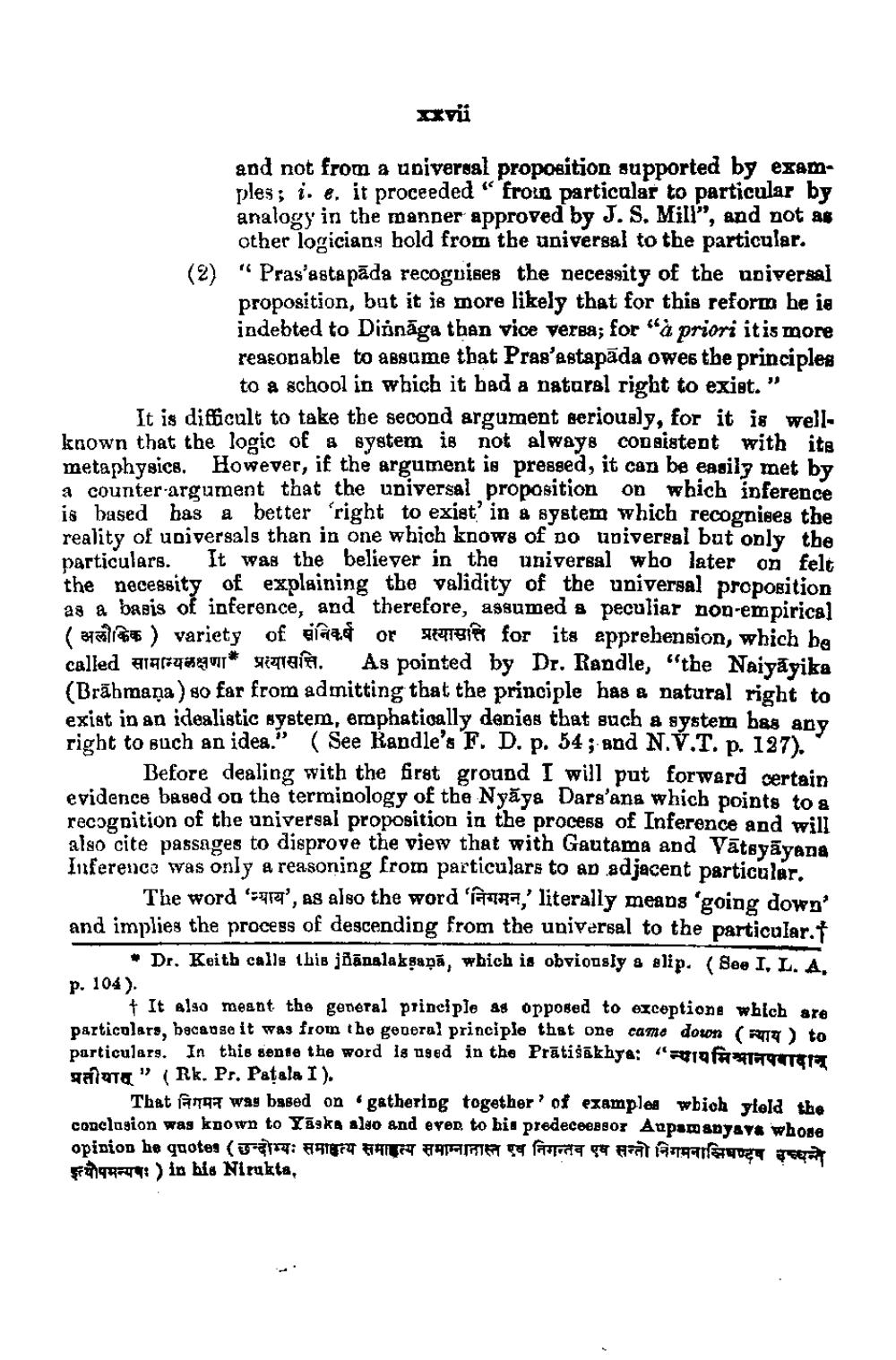________________
vü
and not from a universal proposition supported by examples; i. e, it proceeded "froin particular to particular by analogy in the manner approved by J.S. Mill”, and not as
other logicians hold from the universal to the particular. (2) "Pras'astapāda recoguises the necessity of the apiversal
proposition, but it is more likely that for this reform he is indebted to Dinnāga than vice versa; for "à priori itis more reasonable to assume that Pras'astapāda owes the principles
to a school in which it bad a natural right to exist." It is difficult to take the second argument seriously, for it is wellknown that the logic of a system is not always consistent with its
However, if the argument is pressed, it can be easily met by a counter-argument that the universal proposition on which inference is based has a better right to exist in a system which recognises the reality of universals than in one which knows of po universal but only the particulars. It was the believer in the universal who later on felt the necessity of explaining the validity of the universal proposition
asis of inference, and therefore, assumed a peculiar non-empirical ( अलौकिक ) variety of संनिकर्ष or प्रत्यासत्ति for its apprehension, which be called aragangur* salt. As pointed by Dr. Randle, "the Naiyāyika (Brāhmaṇa ) so far from admitting that the principle has a natural right to exist in an idealistic system, erophatically denies that such a system has any right to such an idea." (See Randle's F. D. p. 54; and N.V.T. p. 127).
Before dealing with the first ground I will put forward certain evidence based on the terminology of the Nyāya Dars'ans which points to a recognition of the universal proposition in the process of Inference and will also cite passages to disprove the view that with Gautama and Vātavā Inference was only a reasoning from particulars to ap adjacent particular.
The word 'r', as also the word 'laana,' literally means 'going down and implies the process of descending from the universal to the particular.
• Dr. Keith calls this jñānalaksaņā, wbich is obviously a slip. (800 I, L. A, p. 104).
+ It also meant the general principle as opposed to exception, which are particolars, because it was from the general principle that one came down (FT) to particulars. In this sense the word is used in the Prātiskhya: “ 19 TET TE galata" (Rk. Ps. Patala I).
That was based on gathering together of examples which ytold the conclusion was known to Yaska also and even to his predecessor Aupamanyava whose opinion he quotes (छन्दोम्यः समाहत्य समाहत्य समाम्नानास्त एवं निगन्तव एव सन्तो निगमनासिघण्दप उच्चन्ने
44749) in his Nirukta,




